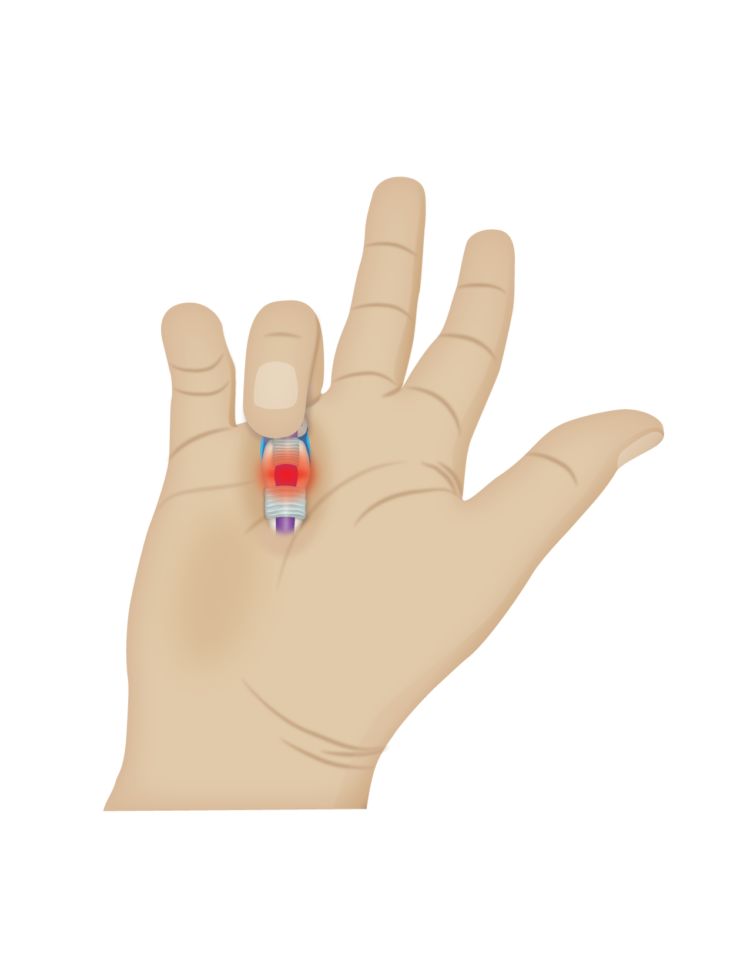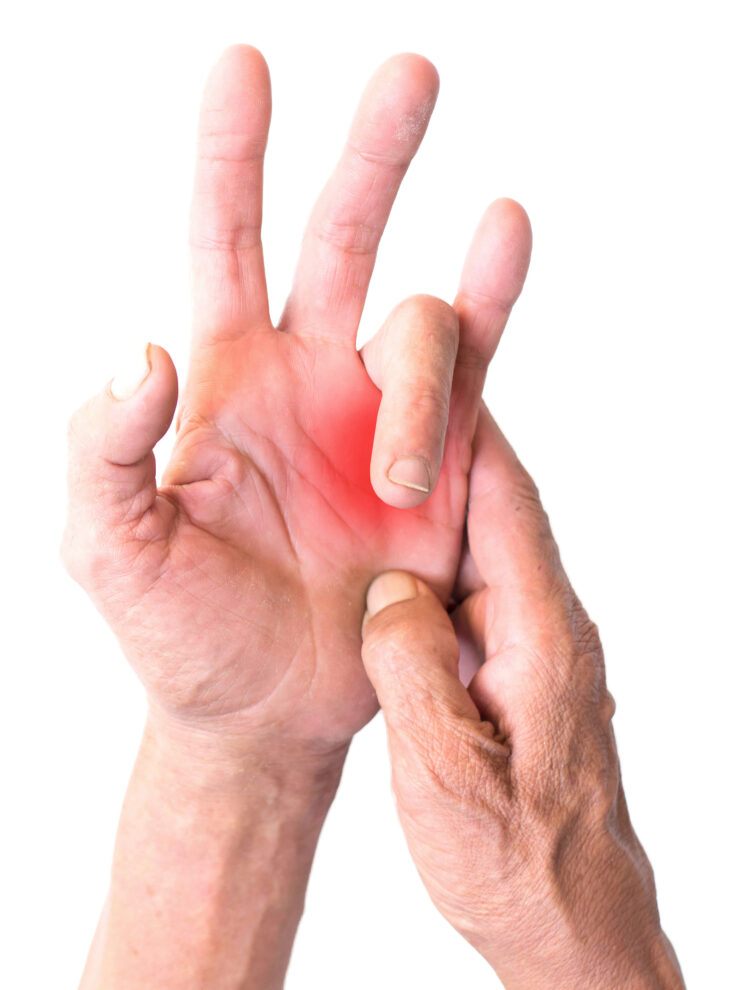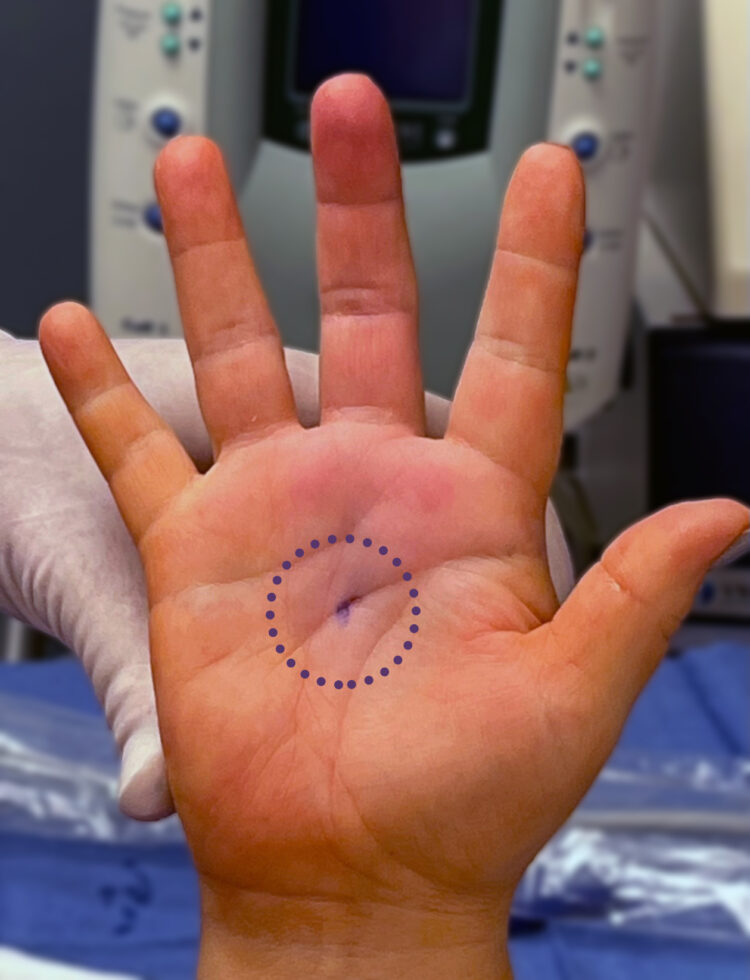What is Trigger Finger?
Trigger finger, or TF, is a common condition in the United States with 800k people diagnosed annually.26 The condition is characterized by catching, snapping or locking as you flex or extend your fingers, causing pain, swelling and popping. Trigger finger occurs when inflammation or swelling creates a nodule within the tendon sheath and prohibits the flexor tendons from gliding smoothly underneath the pulley(s). In severe cases, the finger may become locked in a bent position.





